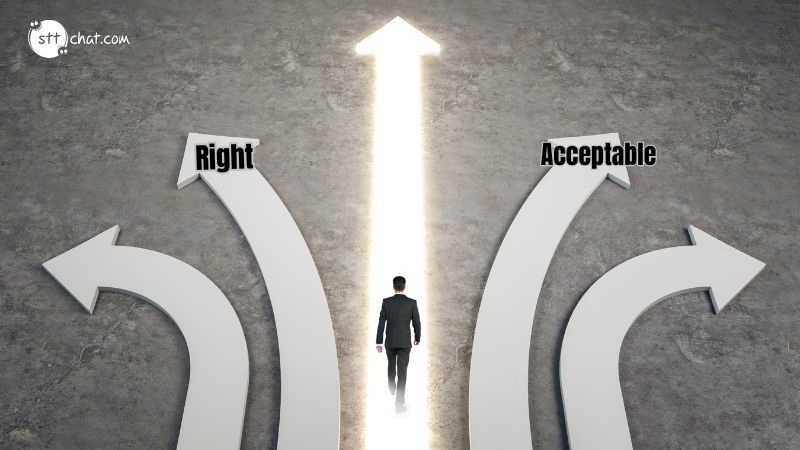"Start with what is right rather than what is acceptable"
-Franz Kafka-
Franz Kafka, a towering figure in literature known for his introspective and often surreal explorations of human existence, offers a compelling directive with his quote: "Start with what is right rather than what is acceptable." This statement challenges us to prioritize moral integrity over social conformity. In this blog, we will delve into the various layers of meaning in Kafka's quote and explore its implications for our personal and professional lives.
1.Defining "Right" vs. "Acceptable"
To fully appreciate Kafka's message, we must first differentiate between what is "right" and what is "acceptable." "Right" refers to actions and decisions that align with ethical principles, personal values, and moral truths. It is about doing what is just, fair, and virtuous, regardless of external pressures. On the other hand, "acceptable" pertains to actions and decisions that conform to societal norms, expectations, or standards. Acceptability often involves compromise and adherence to the status quo, even if it conflicts with our inner sense of righteousness.

The difference betwen "Right" and " Acceptable" - Source: Internet
2.The Courage to Prioritize Morality
Kafka's directive to "start with what is right" calls for moral courage. It requires us to make decisions based on ethical considerations, even when they are unpopular or inconvenient. This emphasis on morality over acceptability highlights the importance of staying true to one's principles, rather than succumbing to the ease of conformity. In a world where social norms and peer pressure can strongly influence behavior, Kafka's words serve as a powerful reminder to uphold our integrity.
3.The Pitfalls of Conformity
Choosing what is merely acceptable can lead to ethical compromises and a gradual erosion of personal values. When we prioritize acceptance over righteousness, we risk losing our moral compass and becoming passive participants in unjust systems. Conformity can stifle innovation, perpetuate injustice, and prevent meaningful change. Kafka's quote challenges us to break free from this cycle and to advocate for what is right, even in the face of opposition.
4.The Relevance of Kafka's Quote in Modern Times
In today's society, Kafka's quote is particularly relevant. We are often faced with situations where the acceptable course of action diverges from the morally right one. Whether in our personal relationships, workplaces, or broader social contexts, the tension between what is right and what is acceptable is a common dilemma. From standing up against unethical practices at work to challenging discriminatory social norms, Kafka's wisdom urges us to choose the path of righteousness.
5. Personal Integrity and Leadership
For leaders, Kafka's quote underscores the importance of integrity. True leadership involves making difficult decisions that prioritize ethical considerations over popularity. Leaders who "start with what is right" inspire trust and respect, fostering an environment where moral values are upheld. This approach not only builds a strong ethical foundation within organizations but also encourages others to act with integrity.
6. The Transformative Power of Ethical Choices
Choosing what is right over what is acceptable has the potential to drive positive change. When individuals act with integrity, they set a powerful example for others to follow. This ripple effect can transform communities and organizations, creating cultures of honesty, fairness, and justice. Kafka's quote reminds us that each ethical decision contributes to a larger movement towards a more just and moral society.

Make a positive life by selecting right thing rather than acceptable with everything - Source: Internet
Conclusion
Franz Kafka's quote, "Start with what is right rather than what is acceptable," is a profound call to action. It challenges us to prioritize our moral values over societal conformity, to act with integrity, and to courageously advocate for what is just. By embracing this ethical challenge, we can navigate the complexities of modern life with a steadfast commitment to righteousness, ultimately fostering a more ethical and compassionate world.






